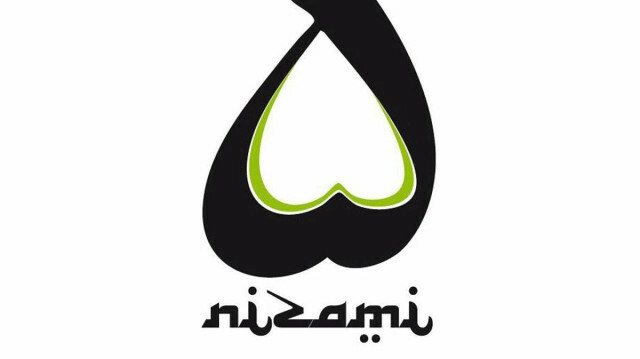
In a statement, the global non-profit, which counts among its esteemed board members former European presidents and prime ministers, warned that Russia’s operation carries serious global implications
Members of the Nizami Ganjavi International Centre (NGIC), a prominent international NGO, have urgently called on Russia and Ukraine to engage in talks to resolve the current conflict, Turkic World reports.
In a statement, the global non-profit, which counts among its esteemed board members former European presidents and prime ministers, warned that Russia’s operation carries serious global implications.
"Yet just as hopes were rising of reaching a post-pandemic state, our world was shocked again, on Feb. 24, when Russia’s military began new moves across Ukraine’s border. The implications are serious for all, particularly for those losing their lives on both sides and those fleeing across borders. Among other impacts will be the effects on the global economy’s capacity to recover from the pandemic. The terrible impacts are immediate and will have painful, wide-ranging effects for years to come," read the statement.
The NGIC called on both sides to cease hostilities immediately and engage in urgent dialogue.
"We, as members of the Nizami Ganjavi International Centre (NGIC), headquartered in Baku, Azerbaijan, call for urgent dialogue between Russia and Ukraine with a view to ending the hostilities immediately. Time is of the essence. The situation becomes worse, and more people lose their lives with every moment that passes. Too many innocent lives are being lost and this situation cannot be allowed to continue," according to the same statement.
The international NGO also called on Kyiv and Moscow to accept Azerbaijani President İlham Aliyev’s offer to host the planned peace talks in “neutral” Baku, which had served as a venue for peace talks between Russia and NATO in the past.
"We acknowledge and appreciate the call of the President of Azerbaijan to host both parties for peace discussions in Baku, Azerbaijan. Baku is a neutral venue for such discussions, having already been a platform for a meeting of top Russian and NATO generals for talks on preventing military incidents. We fervently hope the parties will accept this offer and that Baku can play an important role in solving this biggest security crisis, which Europe has faced since the end of World War Two," concluded the statement.
Russian President Vladimir Putin announced a “special military operation” in Ukraine on Thursday, days after recognizing two separatist-held enclaves in eastern Ukraine.
He claimed that Moscow had no plan to occupy its neighbor, but wanted to “demilitarize” and “denazify” Ukraine.
In response, Western powers imposed financial sanctions on Moscow, and announced military and humanitarian support for Kyiv.
Signatories:
Vaira Vike-Freiberga, President of Latvia 1999-2007
Helen Clark, Prime Minister of New Zealand 1999-2008
Ismail Serageldin, Vice-President of the World Bank 1992-2000
Abdulaziz Altwaijri, former Director-General of ISESCO
Farida Allaghi, former Libyan Ambassador to EU
Sali Berisha, President of Albania 1992-1997, Prime Minister 2005-2013
Ana Birchall, deputy Prime Minister of Romania 2018-2019
Hikmet Cetin, Minister of Foreign Affairs of Turkey 1991-1994, Speaker of the Grand National Assembly 1997-1999, deputy Prime Minister 1995
Robert Cekuta, US Ambassador to Azerbaijan 2015-2018
Maria Fernanda Espinosa, 73rd President of the UN General Assembly, Minister of National Defense of Ecuador 2012-2014, Minister of Foreign Affairs 2017-2018
Susan Elliott, President, National Committee on American Foreign Policy
Chiril Gaburici, Prime Minister of Moldova 2015
Ameenah Gurib-Fakim, President of Mauritius 2015-2018
Mladen Ivanic, President of Bosnia and Herzegovina 2014-2018
Ekmeleddin Ihsanoglu, Secrertary-General OIC 2004-2014
Ivo Josipovic, President of Croatia 2010-2015
Kerry Kennedy, President Robert F. Kennedy Human Rights
Zlatko Lagumdzija, Prime Minister of Bosnia and Herzegovina 2001-2002, deputy Prime Minister 2012-2015
Igor Luksic, Prime Minister of Montenegro 2010-2012
Giorgi Margvelashvili, President of Georgia 2013-2018
Moussa Mara, Prime Minister of Mali 2014-2015
Rexhep Meidani, President of Albania 1997-2002
Rovshan Muradov, Secretary-General Nizami Ganjavi International Center
Festus Mogae, President of Botswana 1998-2008
Stjepan Mesic, President of Croatia 2000-2010
Francis Martin O’Donnell, SMOM Ambassador (ret.); UN Resident Coordinator in Ukraine 2004-2009
Djoomart Otorbayev, Prime Minister of Kyrgyzstan 2014-2015
Rosen Plevneliev, President of Bulgaria 2012-2017
Petre Roman, Prime Minister of Romania 1989-1991, Speaker of the Parliament 1996-1999, Minister of Foreign Affairs 1999-2000
Hedva Ser, Goodwill Ambassador of UNESCO
Laimdota Straujuma, Prime Minister of Latvia 2014-2016
Petar Stoyanov, President of Bulgaria 1997-2002
Boris Tadic, President of Serbia 2004-2012
Eka Tkeshelashvili, deputy Prime Minister of Georgia 2010-2012
Raimonds Vejonis, President of Latvia 2015-2019
Hello, the comments you share on our site are a valuable resource for other users. Please respect other users and different opinions. Do not use rude, offensive, derogatory, or discriminatory language.
The floor is all yours.








